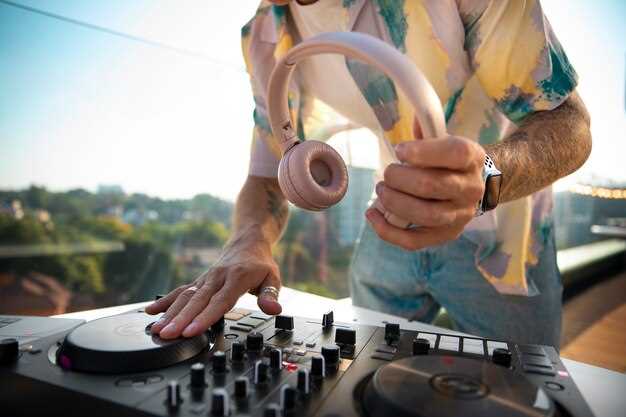For a truly memorable wedding celebration, the JBL EON615 stands out as an exceptional choice. These speakers are specially engineered for clarity, ensuring that every note of your wedding soundtrack resonates with clarity and power. Designed with a 15-inch woofer and advanced waveguide technology, JBL EON615 speakers offer robust bass and evenly dispersed high frequencies to fill any venue. Whether you’re hosting an intimate garden ceremony or a lavish ballroom reception, these speakers deliver consistent, high-quality sound that keeps the energy lively.
Why choose the JBL EON615? Simple – they offer both versatility and convenience. With Bluetooth connectivity, DJs can seamlessly control music and sound directly from their devices. Its lightweight construction paired with smart ergonomics allows easy transport and setup, vital for DJs who frequently move between events. This flexibility doesn’t compromise on performance; JBL’s advanced technology ensures every word and musical note remains crisp, even at full volume.
In comparing other popular choices, like the Mackie Thump15BST and the Electro-Voice ZLX-15P, the JBL EON615 maintains its edge with a combination of innovative features and durable design. The Mackie model impresses with its quick setup abilities and efficient power output, while the Electro-Voice speakers are celebrated for their dynamic range and sleek design. Still, the JBL EON615’s enhanced acoustic abilities and user-friendly controls make it a favorite among both DJs and wedding planners looking for reliability and exceptional sound quality.
Choosing the Right DJ Speakers for Wedding Venues
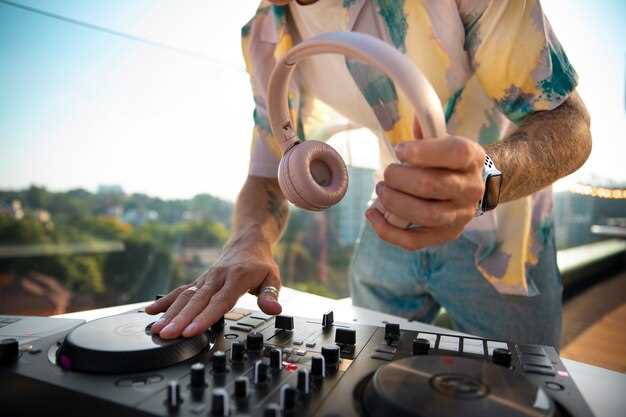
Assess the venue size to determine the power output needed for your speakers. For smaller indoor spaces, speakers with 500-700 watts may suffice, whereas larger venues could require systems exceeding 1000 watts. This ensures all guests enjoy a clear and immersive sound experience.
Prioritize versatility by selecting speakers that offer both wired and wireless connectivity. This flexibility allows you to adapt to varying setup requirements, especially in venues where cable management is challenging or poses a tripping hazard.
Opt for multi-speaker configurations to achieve balanced sound distribution across the venue. Position speakers strategically to avoid audio hotspots and ensure even coverage. Consider investing in speakers with built-in equalizers, which enable quick adjustments to suit the acoustics of diverse settings.
Durability is essential. Choose speakers with robust build quality to withstand transportation and frequent use, especially in outdoor venues where weather conditions might be a concern. Look for models with weather-resistant features if outdoor weddings are part of your repertoire.
Don’t underestimate the importance of aesthetics. Select speakers that complement the wedding décor. Sleek designs and discreet colors can help the speakers blend into the background, keeping the focus on the celebration.
| Consideration | Recommendation |
|---|---|
| Venue Size | 500-700 watts for small venues, 1000+ watts for large venues |
| Connectivity | Wired and wireless options |
| Sound Distribution | Multi-speaker setups and built-in equalizers |
| Durability | Weather-resistant and robust build |
| Aesthetics | Speaker design that blends with décor |
Assessing Venue Size and Acoustics
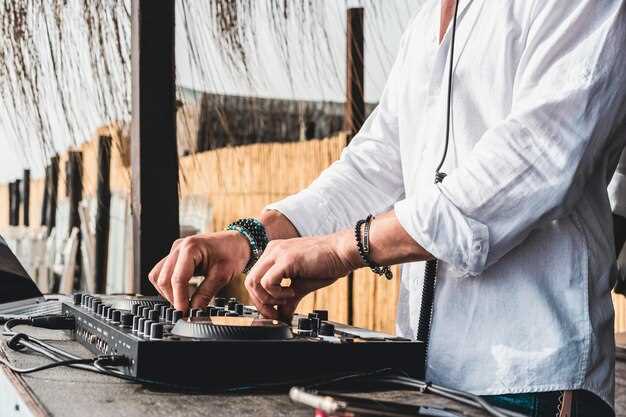
Choose speakers that match the venue size to ensure a great sound experience for everyone. For spaces up to 100 guests, a pair of 10-inch speakers usually suffices. Larger rooms, accommodating 100-250 guests, often require 12-inch or 15-inch speakers, providing ample coverage and clarity.
Consider ceiling height and the presence of reflective surfaces like glass or tile, as these can affect sound quality. High ceilings may benefit from speakers with greater throw, ensuring sound reaches the back of the room. Conversely, low or crowded rooms might need careful speaker placement and possibly sound dampening solutions to prevent echo and distortion.
Evaluate the venue’s layout. If the space is sprawling or divided, additional speaker arrays may be necessary to maintain consistent sound levels. Wireless technology can be advantageous in these situations, allowing flexibility in speaker placement without messy cabling.
Testing acoustics beforehand can aid greatly. Use a decibel meter during a sound check to ensure even coverage across all areas, adjusting speaker positions or volumes as needed. Catering to the venue’s acoustics ensures an immersive experience, delighting guests with clear and balanced audio.
Determining Speaker Power Based on Venue Size
For an intimate venue accommodating 50 guests, aim for speakers with around 50 to 100 watts of power. This ensures everyone enjoys clear sound without overwhelming the space. Small to medium-sized venues hosting up to 150 guests typically require speakers ranging from 100 to 300 watts to maintain a balanced and engaging auditory experience.
For larger spaces holding up to 300 attendees, consider 400 to 700-watt speakers to fill the room effectively without distortion. In very large venues or outdoor settings designed for up to 500 guests or more, invest in speakers with 800 watts or more, and don’t forget to complement them with subwoofers for richer bass.
Always account for the venue’s acoustics; heavily carpeted or draped environments may require slightly more power to achieve the desired sound quality. Similarly, outdoor spaces usually need extra wattage to ensure sound effectively reaches all corners without interference from environmental noises.
Understanding Acoustic Characteristics of Different Wedding Venues
Choosing the right DJ speakers for your wedding requires understanding the acoustic characteristics of your venue. Outdoor settings, like gardens or beaches, usually disperse sound more widely, so opt for speakers with higher power and larger coverage areas. Subwoofers can enhance bass, ensuring the music reaches everyone without distortion.
Indoors, venues like ballrooms or banquet halls often have reflective surfaces such as glass and marble. These can cause sound to bounce, leading to echoing. To counteract this, consider speakers with sound absorption technology or arrange acoustically absorbing materials throughout the room.
Rustic spaces, such as barns, with their wooden structures and high ceilings, offer a unique sound profile. Here, mid-range speakers with clear audio reproduction can help maintain clarity while filling the space. Speaker placement becomes crucial; consider elevating them to avoid sound blockage by tables or guests.
Historic homes or venues with unique architectural elements may present acoustic challenges due to varying room sizes and layouts. Flexible speaker configurations, including wireless options, ensure even sound distribution without damaging historic architecture.
For multiple-room events, integrating a central control system with networked speakers allows consistent sound throughout interconnected spaces, making transitions seamless. Tailoring your audio setup to venue-specific characteristics ensures the music sounds just right, enhancing the celebration’s atmosphere.
Matching Speaker Type to Indoor or Outdoor Settings
For outdoor weddings, opt for weather-resistant speakers that can withstand varying conditions. These will ensure longevity and consistent performance. Consider using speakers with a high wattage power to project sound effectively across large open spaces. Models like the JBL EON615 or QSC K12.2 offer built-in amplifiers and robust sound quality, making them excellent choices for outdoor events.
Indoors, the focus should be on clarity and balanced acoustics. High-frequency response is crucial to prevent echoes in confined spaces. Passive speakers connected to a quality amplifier, such as the Electro-Voice ZLX-12P, often provide the necessary control over sound distribution in various room sizes. Additionally, using a subwoofer can enhance the lower frequencies, creating a richer audio experience.
- Outdoor Setup:
- Choose weather-resistant models
- Prioritize higher wattage power
- Famous models: JBL EON615, QSC K12.2
- Indoor Setup:
- Focus on clarity and acoustics
- Use passive speakers with quality amplifiers
- Consider subwoofers for enhanced bass
Always test your setup before the event to adjust for any environmental acoustics or placement challenges, ensuring every guest hears the music clearly and enjoys the experience.
Prioritizing Sound Quality and Durability
Selecting the right DJ speakers for weddings requires a focus on both sound quality and durability. Investing in sturdy equipment ensures it withstands frequent use and transport between venues. For outstanding sound quality, consider the following options:
- QSC K12.2: This model stands out for its impressive sound clarity and punchy bass. With a 12-inch woofer, it delivers rich sound even in large venues. Its durable ABS enclosure protects against physical damage.
- Electro-Voice ZLX-15P: Known for its robust build and exceptional performance, this speaker features a rugged design perfect for mobile events. Its high-efficiency transducer ensures crisp highs and deep bass.
- JBL EON615: A popular choice among DJs, it provides clear sound across various frequencies. It boasts a polypropylene construction that resists wear and tear, ensuring longevity.
Durable design doesn’t mean sacrificing portability. Each speaker offers convenient carry handles, making setup and breakdown a breeze. For added protection during transport, consider using padded speaker bags or cases. Prioritize models with extra features like built-in amplifiers and wireless connectivity for ease of use. By choosing the right speakers, you ensure your equipment delivers exceptional sound every time without frequent replacements.
Evaluating Frequency Response and Sound Clarity
Choose speakers with a flat frequency response for a balanced audio output, crucial for all genres of wedding music. Look for models with a frequency range from 20 Hz to 20 kHz, covering the entire spectrum of human hearing. This ensures deep bass and clear highs, ideal for varied playlists at weddings.
When assessing sound clarity, prioritize speakers with a high signal-to-noise ratio (SNR). An SNR above 100 dB typically indicates that the speaker can deliver sound with minimal distortion. Check for Total Harmonic Distortion (THD) values below 1% for pure sound reproduction.
Consider the speaker’s crossover system as well. A high-quality crossover ensures the separation of frequencies to the appropriate drivers, enhancing overall clarity. Modern active speakers with built-in digital signal processing (DSP) allow for fine-tuning audio output, adapting to different environments and audience sizes without sacrificing clarity.
Ultimately, conducting a sound test in person will provide the most accurate assessment of frequency response and clarity. Connect the speakers to a high-quality audio source and play various tracks to evaluate performance in different frequency ranges and dynamics.
Considering the Build Quality for Longevity
Choose speakers with a robust construction to ensure they last for many weddings to come. Opt for models with an ABS or plywood cabinet as they offer superior durability and protection against wear and tear. A high-quality grille is essential to safeguard delicate components from accidental damage during transport and setup.
Examine the weight and portability aspects of the speakers. Durable speakers often weigh more due to their solid build, but many manufacturers offer ergonomic designs with handles and wheels for easy transport. Additionally, consider speakers with reinforced handles as they provide better grip and longevity in varied settings.
Heat management plays a pivotal role in prolonging speaker life. Ensure the DJ speakers have adequate ventilation systems or built-in fans to prevent overheating during extended events. Speakers designed with thermal protection circuits provide added security by automatically shutting down to avoid heat damage.
Screw connections and reinforced corners further enhance the strength of the cabinet. When assessing models, look for those featuring metal corner protectors and screws that are tightly secured to withstand repeated use and setup adjustments.
| Feature | Recommendation |
|---|---|
| Cabinet Material | ABS or Plywood for strength and durability |
| Ventilation | Include built-in fans or ventilation system |
| Handles and Wheels | Ergonomic designs for easy transportation |
| Hardware and Fastenings | Metal corner protectors and secure screw connections |
Investing in well-built speakers ensures enjoyable wedding soundtracks and reduces maintenance costs over time. Sound quality must be matched by reliability and construction to truly benefit DJs looking for equipment that delivers consistently.
Reviews of Top Brands Known for Wedding DJ Speakers
For an exceptional sound experience at weddings, JBL offers speakers with high clarity and strong bass. The JBL PRX825W model stands out due to Wi-Fi capabilities, allowing DJs to control settings via a smartphone. Its robust sound suits both small and large venues, providing versatility for various wedding sizes.
Mackie’s Thump Series also garners attention for reliability and affordability. The Thump15A packs a punch with its 15-inch woofer, ensuring all attendees enjoy high-energy beats. Its ultra-efficient amplifier design delivers consistent and powerful audio, keeping the dance floor energized throughout the event.
QSC’s K.2 Series offers premium features desired by professional DJs. The K12.2 model harnesses 2000 watts of power, ensuring no drop in audio quality. Equipped with advanced DSP, DJs have full control over EQ settings to match different acoustic needs. Its simple yet durable design promises longevity and practicality.
Electro-Voice’s ZLX-12BT stands out with its Bluetooth functionality, allowing for easy streaming of playlists. This model combines compact design with professional-level performance, making it ideal for intimate wedding settings. The DSP presets further simplify setup, catering to various venue acoustics.
For those prioritizing portability, Bose’s S1 Pro System provides an excellent balance between size and power. Its lightweight frame doesn’t compromise sound quality, making it a favorite for outdoor weddings. The speaker also includes a built-in three-channel mixer and battery option for on-the-go events.
Integrating with Existing DJ Equipment
Select active speakers that offer flexible connectivity options such as XLR, TRS, and RCA inputs to seamlessly integrate with current gear. Verify compatibility with your mixer or controller to prevent any sound quality issues or unexpected buzz. If your setup includes vintage gear with limited outputs, consider utilizing a versatile DJ audio interface to expand connectivity options.
- Cables Matter: Invest in high-quality cables to ensure a crisp and clear audio signal. Opt for balanced cables to minimize interference during transmission.
- Check Impedance: Match speaker impedance with your amplifier settings if you’re using passive speakers, ensuring optimal performance and preventing damage.
- Wireless Option: Incorporate wireless receivers to interact with Bluetooth-enabled speakers, reducing cable clutter and allowing flexible placement.
- Sound Calibration: Conduct a sound check and use a sound meter for accurate readings, adjusting the EQ settings to match the acoustics of the wedding venue.
- Power Management: Use a reliable power strip with surge protection to safeguard your equipment and maintain consistent performance throughout the event.
Regularly update firmware of your digital audio equipment to benefit from improved functionality and bug fixes. This practice helps maintain compatibility with a broader range of devices and optimizes sound quality.
Video:
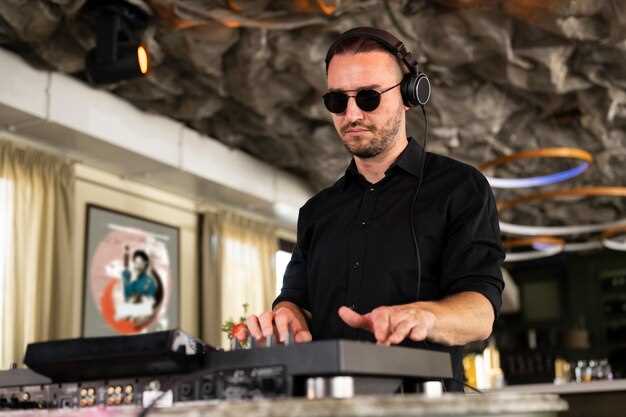
Choosing the Best Powered PA Speakers for You
Choosing the Best Powered PA Speakers for You
Q&A:
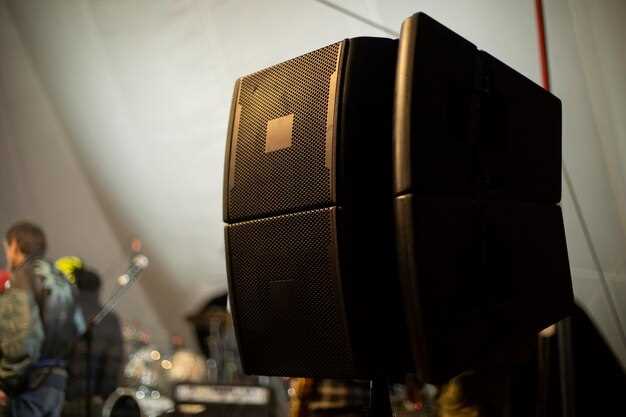
What are the most important features to consider when choosing DJ speakers for a wedding event?
When selecting DJ speakers for a wedding, several features stand out as particularly important: sound quality, portability, power output, and connectivity options. High-quality sound ensures that speeches, announcements, and music all resonate well with the audience. Portability is key for easy setup and takedown, especially since wedding venues may vary greatly. The power output should match the size of the venue and the number of guests to ensure adequate sound coverage. Finally, having multiple connectivity options, such as Bluetooth or XLR inputs, can offer flexibility for different setups and additional devices.
How can I ensure that my DJ speakers will cover a large wedding venue adequately?
To ensure your DJ speakers can adequately cover a large wedding venue, consider the power rating and the design of the speakers. Generally, speakers with higher wattage can deliver sound over greater distances. Line array speakers are particularly effective for large spaces because they project sound evenly across the room. Additionally, explore the possibility of adding subwoofers to enhance bass response, and verify that speaker placements are optimal to avoid dead zones. You might also conduct a sound check before the event to adjust speaker angles and verify coverage.
Are there specific speaker brands known for their reliability and performance at weddings?
Several speaker brands are renowned for their reliability and performance in wedding settings, including JBL, Bose, and QSC. These brands offer models that boast excellent sound quality, build durability, and user-friendly features, ensuring consistent performance across various event types. JBL, for example, offers a wide range of portable speakers that are well-suited for dynamic venues. Bose is known for its sleek designs and sound clarity, ideal for both indoor and outdoor weddings. Meanwhile, QSC provides speakers that are praised for their power and robustness, often favored by professional DJs.
Is it necessary to rent or buy subwoofers along with DJ speakers for a wedding reception?
While not strictly necessary, renting or purchasing subwoofers can significantly enhance the audio experience at a wedding reception. Subwoofers are designed to handle low-frequency sounds, which add depth and richness to music, making the atmosphere more engaging, especially during dancing portions of the event. Whether you choose to include subwoofers depends on the size of the venue and the musical preferences of the couple. If the wedding involves extensive music with strong bass lines, subwoofers are highly recommended. For smaller, more intimate settings with less emphasis on heavy bass, they might not be essential.
Can you recommend any DJ speaker setups that are particularly suitable for outdoor weddings?
For outdoor weddings, consider a speaker setup that offers weather resistance and robust sound projection. The LD Systems Maui series, for instance, incorporates column PA systems that are praised for their clarity and wide sound dispersion, which is advantageous in open-air environments. Similarly, Electro-Voice speakers are known for their weather-resistant designs and powerful output, making them a reliable choice for outdoor events. Pairing these with durable stands and protective covers can provide additional support against environmental factors like wind and moisture.
What features should I look for in DJ speakers specifically designed for weddings?
When choosing DJ speakers for weddings, consider their sound clarity and volume capabilities, as they need to fill large spaces with high-quality audio. Portability and ease of setup are also important, especially if the venue has limited access or requires quick switching between locations. Versatility in input options—such as Bluetooth, XLR, or RCA—can help accommodate different audio sources. Finally, durability and aesthetic design are worth considering, as speakers should match the elegant setting of a wedding and withstand frequent use.
